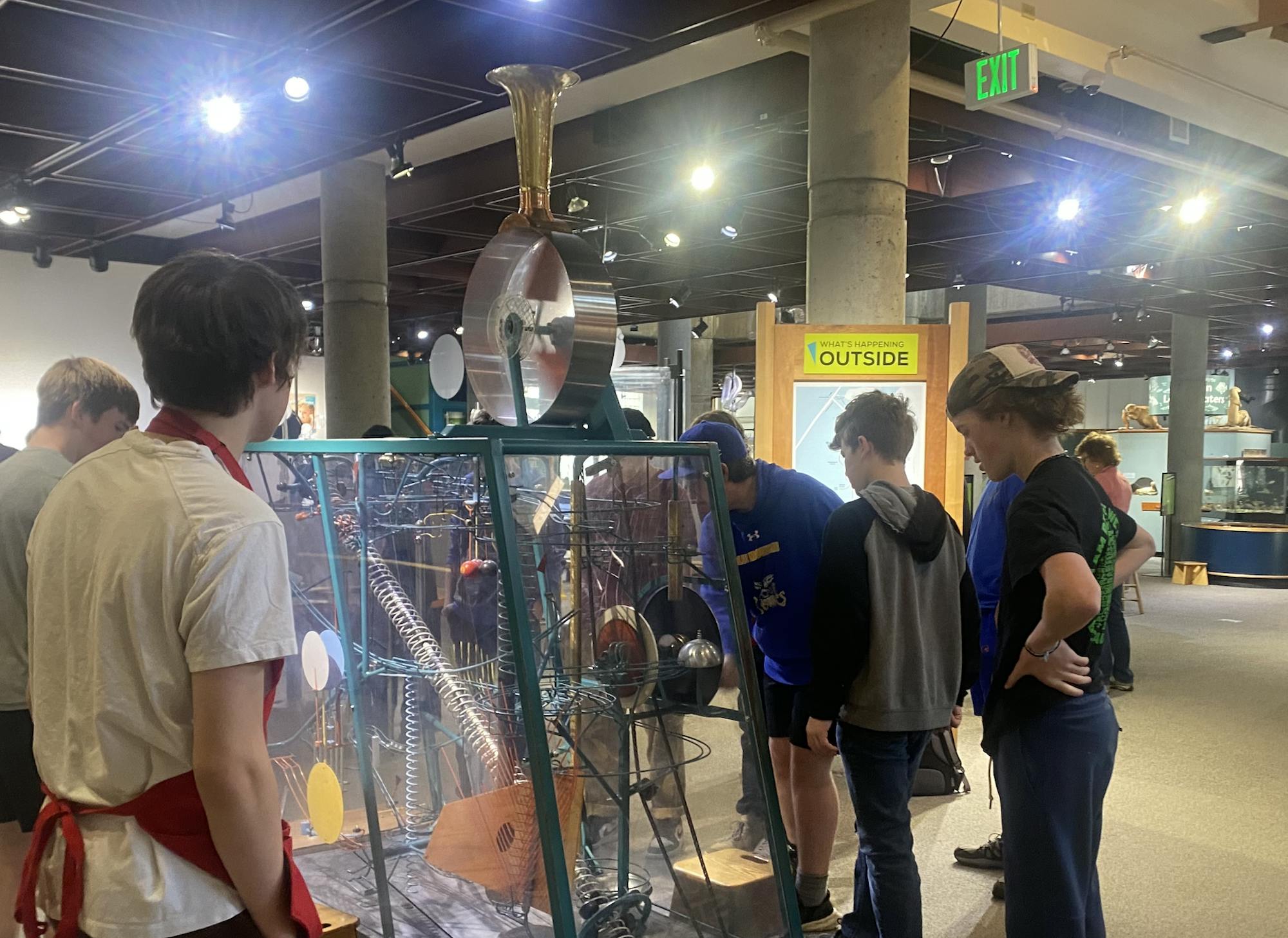On May 11, Dartmouth graduate students organized a staged jewel heist for approximately 100 eighth graders from local middle schools at the Montshire Museum of Science in Hanover. The jewel heist was part of a Dartmouth initiative to increase access to hands-on science education.
The heist was funded by the National Institute of General Medical Sciences, which awarded a Science Education Partnership Award grant to biological sciences professor Roger Sloboda, sociology professor Michele Tine and Thayer engineering professor Vicki May in 2019. The aim of the $1.3 million grant is “to support middle school teachers with their science pedagogy,” and it draws applications from across the country each year, according to Sloboda.
Sloboda said their winning pitch for the grant highlighted the importance of bolstering rural access to education, especially in an isolated environment like Hanover.
“There’s a big hole in middle school science education, especially in rural environments where the teachers are overworked and under-resourced,” Sloboda said. “The grant not only gives them ideas for new science classroom engagement, but also provides some money to buy the supplies to do that.”
The middle school teachers also choose a new focus for the science curriculum every year, Sloboda said. Under the umbrella of this year’s chosen topic, forensic science, students traveled to different stations around the museum and practiced DNA analysis, blood spatter analysis and fingerprinting. In the past few years, the teachers have chosen different focuses for the science curriculum, and one of the past focuses was a “terrarium plant growth project,” according to Sloboda.
Since the inception of the project in 2019, Dartmouth graduate students have volunteered to assist the middle school teachers in creating the curriculum. In the winter, they visit student classrooms to act as peer mentors and “exemplars of the scientists the students could be,” according to the grant’s external assessor Lynn Foster-Johnson.
The graduate students have diverse reasons for getting involved. Ph.D. student at Guarini Jeff Joseph said that having early exposure to science was an important part of his career choice — and he wanted to pass that on to students of the Upper Valley.
Ph.D. student at Guarini Abigail Goen said she did not start her “science journey” until she was a mother of three children and began thinking about why science is an important field for young kids.
“As I started to learn and understand how relevant understanding science was to interpreting so many other things in our world … I really got interested in that intersection between science and society,” Goen said. “I think the next generation is always going to be the most important investment we can make.”
Foster-Johnson said that rural schools have a harder time collaborating with each other to create innovative science projects. The project was designed with those constraints in mind, Foster-Johnson said.
“We designed it specifically with rural [schools] in mind,” Foster-Johnson said. “Much of what the students are exposed to are things that they experience in their daily lives: A couple years ago we did a project on ticks.”
The Montshire Museum was a sub-awardee of the grant, according to the museum's manager of public relations Honor Hingston. She said that the museum was “lucky” to be in such close proximity to Dartmouth’s campus
“[Collaboration between the College and the middle schools] sort of scratches two backs,” Hingston said. “It’s wonderful for the grad students to get that hands-on teaching experience, to see that immediate feedback from students, and for students to see relevant science information in young people who are doing that work right now.”
The grant has had success over its four-year tenure, according to Foster-Johnson, who measures its effectiveness through surveys and student feedback.
“We’re seeing great increases in self-efficacy and student’s confidence in science,” Foster-Johnson said. “It’s a different twist on science for a lot of the students because a lot of the students don’t get this kind of exposure.”
The teachers have an “increased confidence level in their ability to engage their students with classroom activities,” Sloboda added.
Sloboda said that this project was especially important because it engages children at the age when many girls lose interest in the sciences.
“The problem is that middle school is when students start to lose their interest in science, especially young girls,” Sloboda said. “Changing that in one program is like trying to turn the oil tanker off the reef before it gets there — you just can’t do anything.”




